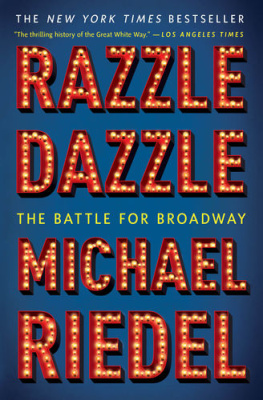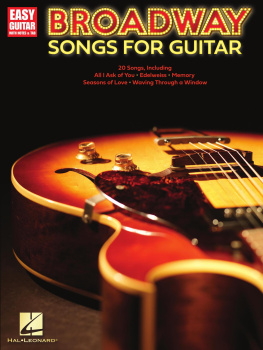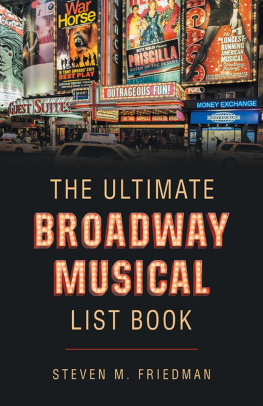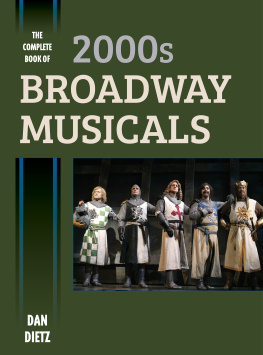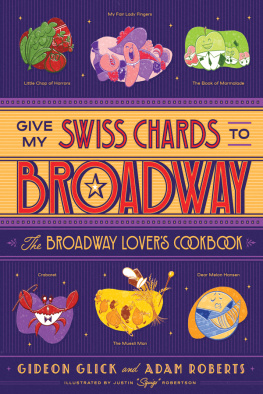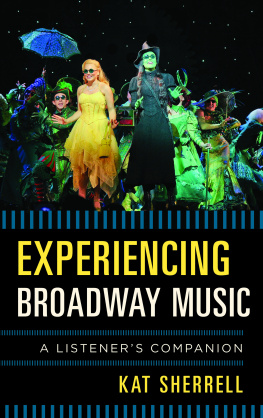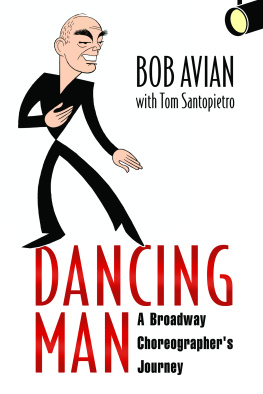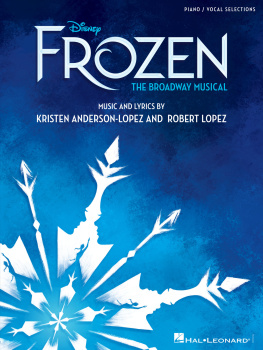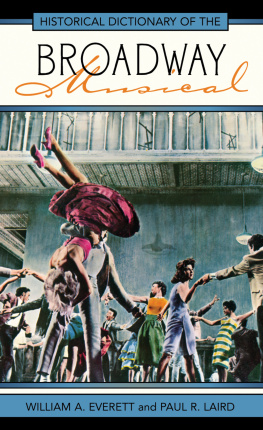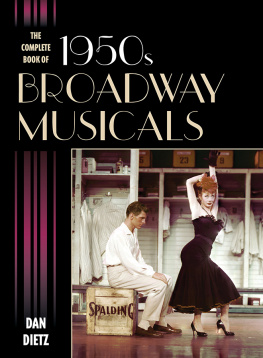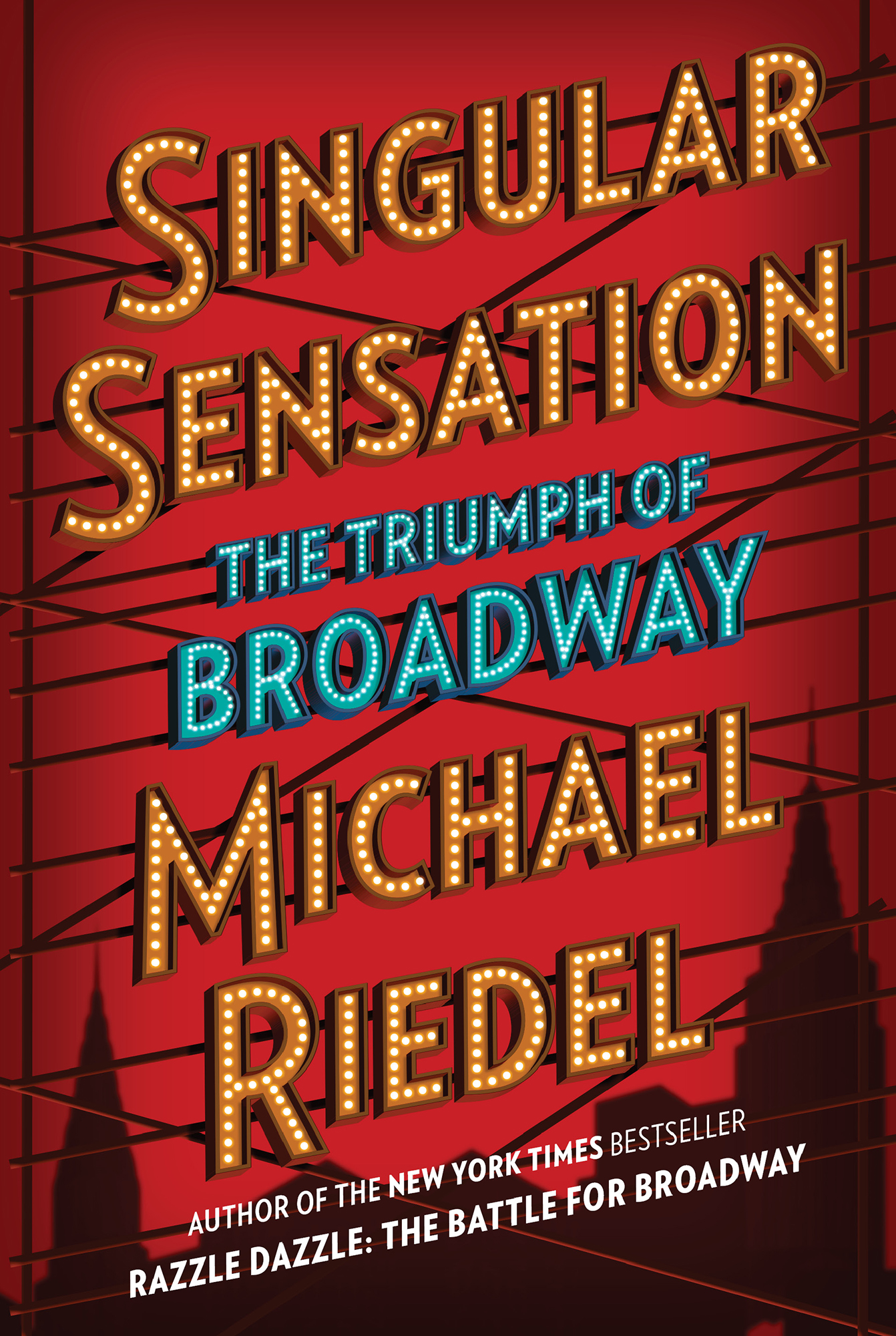Contents
Guide
ALSO BY MICHAEL RIEDEL
Razzle Dazzle
A VID R EADER P RESS
An Imprint of Simon & Schuster, Inc.
1230 Avenue of the Americas
New York, NY 10020
www.SimonandSchuster.com
Copyright 2020 by Michael Riedel
All rights reserved, including the right to reproduce this book or portions thereof in any form whatsoever. For information, address Avid Reader Press Subsidiary Rights Department, 1230 Avenue of the Americas, New York, NY 10020.
First Avid Reader Press hardcover edition November 2020
AVID READER PRESS and colophon are trademarks of Simon & Schuster, Inc.
For information about special discounts for bulk purchases, please contact Simon & Schuster Special Sales at 1-866-506-1949 or .
The Simon & Schuster Speakers Bureau can bring authors to your live event. For more information or to book an event contact the Simon & Schuster Speakers Bureau at 1-866-248-3049 or visit our website at www.simonspeakers.com.
Interior design by Kyle Kabel
Jacket design by Tal Goretsky
Author photograph Annie Wermiel
Library of Congress Cataloging-in-Publication Data is available.
ISBN 978-1-5011-6663-1
ISBN 978-1-5011-6664-8 (ebook)
For my parents, Bob and Penny
FOREWORD
I never intended the subtitle of this bookThe Triumph of Broadwayto be ironic. Singular Sensation charts the success of Broadway in the 1990s, and its remarkable comeback after the 2001 attack on the World Trade Center. But around the time I turned in the manuscript, something called the coronavirus was stirring in China. I didnt give it much thought, and treated myself to a ski vacation in Switzerland and Italy the first week of March. Two days after I got back to New York, one of the resorts I was in, Cervinia, shut down. The virus was spreading across Northern Italy.
And then it hit New York. Many of us who work on or around Broadway were slow to grasp the implications for this business. Scott Rudin, the producer of The Book of Mormon, To Kill a Mockingbird, and the revival of West Side Story, saw his box office grosses wobble and announced any unsold seats, once priced at several hundred dollars, could be had for fifty dollars. I thought it was a brilliant move. Who wouldnt leap at the chance to see a hit Broadway show at such a bargain price?
The hot show in town was the revival of Stephen Sondheims Company starring Patti LuPone. It started previews on March 2 and was scheduled to open March 22, Sondheims ninetieth birthday. The mood of public officials was growing darker, and I remember thinking Sondheim might skip the opening. But I never thought, nor did anyone in the show, that it wouldnt open. And then Cynthia Nixon, who had run for governor of New York and was politically connected, attended a preview. Sitting in LuPones dressing room afterward, she told LuPone and Chris Harper, the shows producer, that she had tickets for the opening but came to the show that night because I wanted to do something fun before this city is locked down.
On March 10, the Broadway League, the industrys trade organization, announced that cleaning crews would scrub down theaters after every performance. The League told actors not to mingle with audience members at the stage door after the show. And then on March 11, New York governor Andrew Cuomo prohibited gatherings of five hundred people or more. Broadway announced it was going darkbut only for a month.
COVID-19 hit Broadway hard with the news that it had killed playwright Terrence McNally, at eighty-one. He appears throughout these pages. A few days after he died, I emailed his husband, Tom Kirdahy, a line Terrence has in the book. Kirdahy wrote back, The stories have come pouring in from everywhere, but none made me laugh out loud. Until now.
I hope when you come across Terrences line, it will make you laugh out loud, too.
As I write this foreword at the beginning of May 2020, Broadway is still shut down, and nobody knows when it will come back. The official word is that Broadway will reopen in the fall. But many theater people think the spring of 2021 is more likely. Broadway is a $2-billion-a-year business, and the losses will be staggering. Many shows will never reopen. The big titlesWicked, The Book of Mormon, The Lion King, Hamiltonwill, but without those $2- and $3-million-a-week grosses. When will the tourists, who make up nearly two-thirds of the Broadway audience, return to New York, where more than twenty thousand people so far have died from COVID-19? No one has the answer.
Singular Sensation is about a happier time. My first book, Razzle Dazzle: The Battle for Broadway, attempted to show how a handful of peopleShubert chiefs Bernard B. Jacobs and Gerald Schoenfeld, James M. Nederlander, Michael Bennett, Andrew Lloyd Webber, and Cameron Mackintoshrescued Broadway from the sleaze of Times Square in the 1970s and 80s. The book ended in 1995 with Bernie Jacobss death. I didnt think I had another book about Broadway in me, but then my editor, Ben Loehnen, suggested a sequel. I realized that, as the theater columnist for the New York Daily News from 1993 to 1998, and then for the New York Post from 1998 until I was furloughed due to COVID-19, Id covered almost thirty years of thrilling, tragic, hilarious, and tumultuous events on Broadway. I wrote about the feud between Patti LuPone and Andrew Lloyd Webber at Sunset Boulevard. I attended a performance of Rent a few days after the death of its creator, Jonathan Larson. I caught twenty minutes of a rehearsal of The Producers, and, after seeing Nathan Lane sing The King of Broadway, raced back to my office at the Post and pounded out a column urging New Yorkers to get tickets now. And I watched, from my apartment in the West Village, the Twin Towers collapse.
But Singular Sensation is not a memoir. I interviewed more than a hundred people to tell the behind-the-scenes stories of some of Broadways most celebrated shows and personalities. I was astounded at how much I didnt know. I strung columns together with bits and pieces of information, but after spending hours with the people who created the shows, or who took part in key moments in Broadway history, I had to laugh at how much I missed, failed to understand, or got wrong. Columnists can be know-it-alls. I certainly was. Writing Singular Sensation was fun. It was also humbling.
I planned to end this book with Hamilton. But I soon realized its length would dangerously approach Robert Caro territory, and Im no Robert Caro. So I decided to concentrate on the 1990s, a decade of profound change on Broadway. All forms of popular entertainment have had such periods. The Golden Age of live television lasted roughly from 1947 to the late 1950s, when the pursuit of ratings led to an explosion of pretaped sitcoms. Broadways Golden Age began in 1943 with Richard Rodgers and Oscar Hammerstein IIs Oklahoma! and carried on through their final show, The Sound of Music, in 1959. Hollywoods Golden Age lasted a little longer, from 1930 until the fall of the studio system around 1948. A new era arrived in the late 1960s, as directors such as Robert Altman, Stanley Kubrick, Mike Nichols, and Roman Polanski came to wield as much power over their movies as any studio executive.
On Broadway in the early 1990s, the British invasion was still in full swing, but it came to an abrupt end with the collapse of

